Executive Interviews
Our Executive Interviews feature top leaders from across the disciplines that we specialise in, sharing their career advice and experience with candidates seeking success in those sectors.
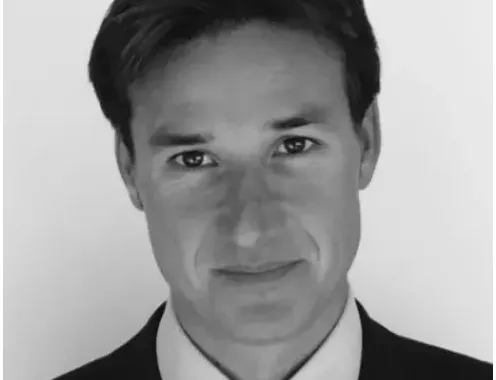
Romain Raimann - Senior Manager Corporate Audit - Baxter International Inc
As someone who is interested in sports in general, what can Switzerland offer?
Due to its topography, Switzerland offers a wide change of outdoor opportunities. As you may be aware, we have a lot of lakes, rivers, mountains, forests and open areas that are all easily accessible due to their proximity from our main cities and the excellent transportation system that this country offers. In addition, the seasonal weather increases the variety of options that are available to all outdoor fans. Last but not least, I haven’t heard anyone complaining about some of the amazing landscapes that are definitely worth exploring!
What advice would you give to someone looking to move here at the current time?
First of all to ensure that the company has a medium/long term plan in place to keep its presence in Switzerland. As all other countries do, we are subject to economic and political factors/decisions that may justify reconsidering the needs to set up/keep local operations. However, Switzerland has been and remains a very attractive place to do business and invest in due to its stability, safety, know-how and qualitative workforce which will always be favourable elements. I would also mention to assess if the Swiss lifestyle is something that matches the expectations of people coming from abroad – We have a very high quality of life but are quite different from our neighbour countries. Finally I would definitely recommend learning the local language which will be an asset for the rest of your life.
What is the best advice you have ever been given?
To make sure that you learn new skills or develop new ones every 6 months as part of your private and professional development and that you make a difference in your current role before moving too quickly to the next one. A career is something that should be built with patience and decisions should be taken considering the long run.
Who do you look at for sources of inspiration?
People and leaders that are able to balance their life (work life balance) and manage their time efficiently. By definition time is limited which makes it very precious. I always believed that we all beneficiate from being able to switch off from work regardless of how busy and how much responsibilities we have. With the development of technology and the endless increasing completion and pressure, we are all required to be more connected and flexible. Being able to add skills and perspective that come from our private life into our professional live is key. Similar to the previous question, this is something that will contribute to the long term success and stability.
As someone who has lived in both the French & German speaking regions of Switzerland, what would you highlight as the main differences of the regions?
First of all the language…even if pretty much everybody speaks English in Switzerland! The mentality is also very different but this is not only dependent of the speaking region that you are in but if you live in a city or in the country side. In general, German speaking people seem to be more conservative. People’s habits are also different but this difference trends to decrease due to the fact that our main cities have a lot of expatiates. They both offer multiple job opportunities and a wide range of outdoor activities.
*Views and opinions contained within our Executive Interviews are those of the Interviewee and not views shared by EMEA Recruitment.*

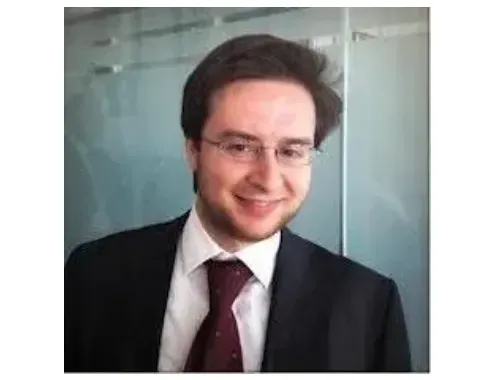
Giulio Campanella - Associate Director, Duracell Regional CFO Europe and IMEA - P&G
You have clearly had a long and successful career within P&G since 1999. Why is P&G such a good place to work?
P&G is a great place to work, indeed. The first stunning experience is the quality of the people. It’s excellent! And what unites those brilliant people is their passion for winning infused by a very strong ethic and value driven business approach.
As you spend much of your time in Geneva, what do you like about Switzerland?
The people, their balanced culture and the proximity to the most magnificent landscape. I like the easy access to nature and outdoor sport in general.
You have recently been leading the re-structuring of the Duracell business. What were the main challenges and successes for you during this project?
Duracell today is a division of P&G, and will become a fully independent, stand-alone entity owned by Berkshire Hathaway. For me, the biggest challenge was to (re)create the F&A Team, from a small regional HQ team to an end to end Finance function leading the region. This team will have a critical complement skillset, balance technical hard core F&A skills with start-up spirit and passion to succeed with this project.
As a senior finance leader who inspires people, who do you look to for sources of inspiration?
The biggest source of inspiration for me is having a purpose, in business like in life, and putting every action in the context of this purpose. My purpose is ” improving everyone’s life”?, and my way of doing that is by selling products which perform better and truly improve people’s life. As well, by being more performing, you end up using less resources and therefore produces less waste. In my experience, it is important for each employee to feel what they are doing goes beyond business titles and a pay check at the end of the month.
What is the best piece of advice you have ever been given?
Stay true to yourself. Every person is
different, and the best way to succeed is to find what is the unique thing one can add, and playing to one’s strengths.
Finally, with the Christmas period fast approaching, what are your plans for the festive period?
I will enjoy spending the time with my family, that’s my lovely wife my great 3 year old boy and my only recently new born baby girl. Being with them will allow me to recharge my batteries and looks towards a very successful 2016 with Duracell.
*Views and opinions contained within our Executive Interviews are those of the Interviewee and not views shared by EMEA Recruitment.*
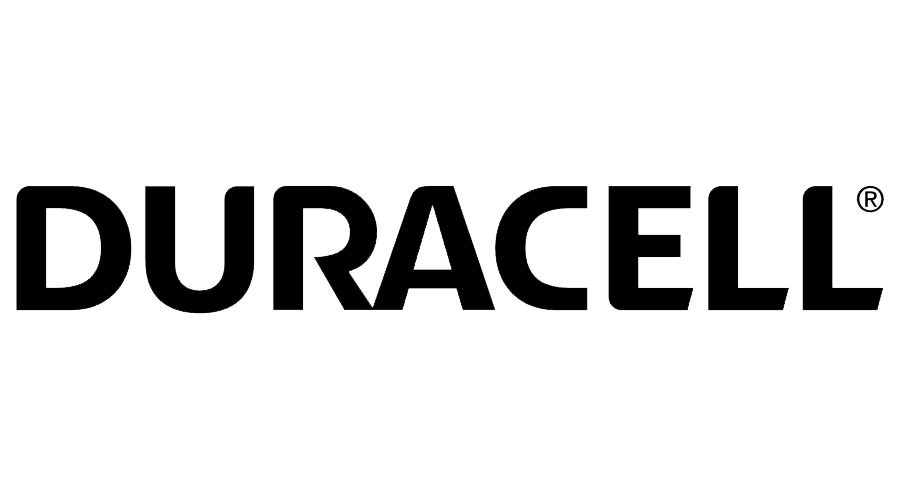
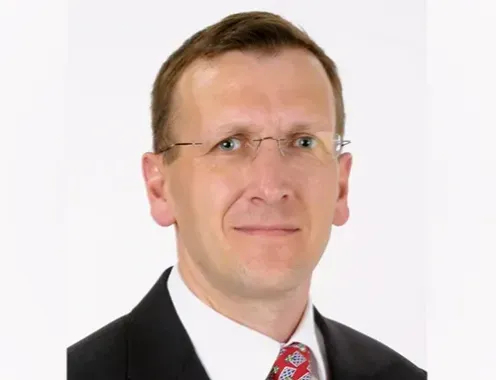
Mathias Schinzel - CFO - Emerson
Emerson Process Management seems to be continuing to grow and expand what makes you stand out from your competitors?
I think we have had a good run until a year ago. In all fairness, however, with the oil price being low this year we – like our competitors- are now having to structure and redirect our business towards industries that use oil and gas as their feedstock. Our recent order intake numbers make us optimistic that we are going in the right direction .As you alluded to in your initial question we have done really well.
What do you enjoy about living and working in Switzerland?
It is a very stable environment in a central European location and an excellent infrastructure. Tax incentives have always been a factor in the past. And quality of life is very good here.
As someone who has about ten years of experience working in the Swiss market-place, how have you found the Swiss market & working environment to have changed over these years?
Economically things have changed in the last couple of years: there is more pressure for transparency in banking and taxation. Last year’s referendum on immigration will inevitably have a future impact on the issue of work permits. Finally the Swiss franc has recently strengthened. These things all put pressure on the country and companies and serious challenges ahead.
What are the biggest challenges currently facing the business?
No one can tell where the oil price will go, but if you watch the news the supply of oil and gas is high at the moment and we will stay in this low oil price environment for a while so we have to explore other sectors. We have benefitted from the expanding Chinese economy, so the downturn in the Chinese economy has affected our business. We will have to see how we reposition in China and the export from our European countries into China. It’s a portion of our business but not large enough to have a dramatic effect. Matters in Russia we will also have to monitor.
Have the ongoing problems in Greece and its impact on the Eurozone had any impact on Emerson?
The Greek market is comparatively small. However, the Greek crisis has had a detrimental impact on the Euro.
What attracted you to join Emerson and what has kept you engaged about working here?
I joined when a segment of my previous company was acquired by Emerson. Once here I began to appreciate the company culture and its values, which match my own in many ways. It is a global company with a vast number of career opportunities, assuming you have the flexibility and personal circumstances that allow you to pursue positions abroad.
What do you see as the core values of Emerson?
Drive for results, continuous improvement and problem solving, reliability and commitment, honesty, humility and integrity. We don’t take short cuts and we work hard.
If you could go back and give your younger (graduate) self some career advice, what would it be?
My oldest daughter just finished her International Baccalaureate and we are having lots of discussions right now. I recommend taking time whilst you are young to explore what you enjoy doing; your chances of success are significantly higher if you really like what you are doing. Try new things; have different experiences and try different occupations. Travel is invaluable to get a sense of the vast variety the world has to offer; see the world before getting embedded in your career. Do not be naïve in thinking you can plan or predict anything beyond the next 5 to 10 years. It is likely that you will retire in a quite different place than where you started your career and that in itself is not a bad thing.
What are your personal motivators?
Making the company better every day; helping the team to develop their competitive edge; using my common sense; decision making as if it were my own company; continually learning; helping to nurture younger talent.
How did you plan out your career development path?
Step by step, I had no long term plan. I was open minded and self-motivated and grabbed every opportunity that arose.
How do you relax outside work?
Honestly, I do struggle to switch off from work at times. I am trying at the moment to get my focus back on the main things and don’t get distracted by the noise. I have worked out with my all my direct reports to work a system for when I am on holiday to prevent flooding my emails and how to reduce e-mail traffic in general. It is one thing to say, I am not going to look at my emails, but at the same time nobody wants to get back from holiday and have a 1000+ emails. When I do switch off eventually, I enjoy spending time with my family, sports (hiking and skiing), reading, wining and dining.
What would you say is the most rewarding part of your role?
Having a hand in the development of future leaders, coaching, inspiring and mentoring people.
Looking back through your career, what would you identify as a personal highlight?
My time in China shaped me the most, both in work and private life. It was a real adventure. There were several particularly memorable leaders who had a great influence on me.
What was the worst / best interview experience you have had?
Best: when you can have lively discussions on different business scenarios early on in an interview.
Worst: when a candidate answers with a generic statement indicating that they have not had hands-on experience.
How would you advise a jobseeker to approach the current market?
Do your research! Spend as long as time allows for detailed research. Ensure that you make you application in the appropriate manner for that particular company. Showing an edge is better than trying to please everyone. Have a niche.
What advice would you give to future aspiring leaders, and why?
Be passionate, true and use your common sense. Take a balanced view; keep your sense of humour and moral integrity. Make a difference and try to maintain an entrepreneurial stance, even in a large corporation.
Which person do you admire in business and why?
Steve Jobs for his uncompromising vision and execution; I am not sure I would adopt his leadership style however! There are also a number of CEOs, of small and medium size companies, for their personal vision and perseverance surviving in niche markets through innovation and speed. Politically I admired the German Chancellor Helmut Schmidt, in my opinion, one of the best leaders Germany ever had. It is fascinating and humbling to read his views and learn the extent of his knowledge.
*Views and opinions contained within our Executive Interviews are those of the Interviewee and not views shared by EMEA Recruitment.*
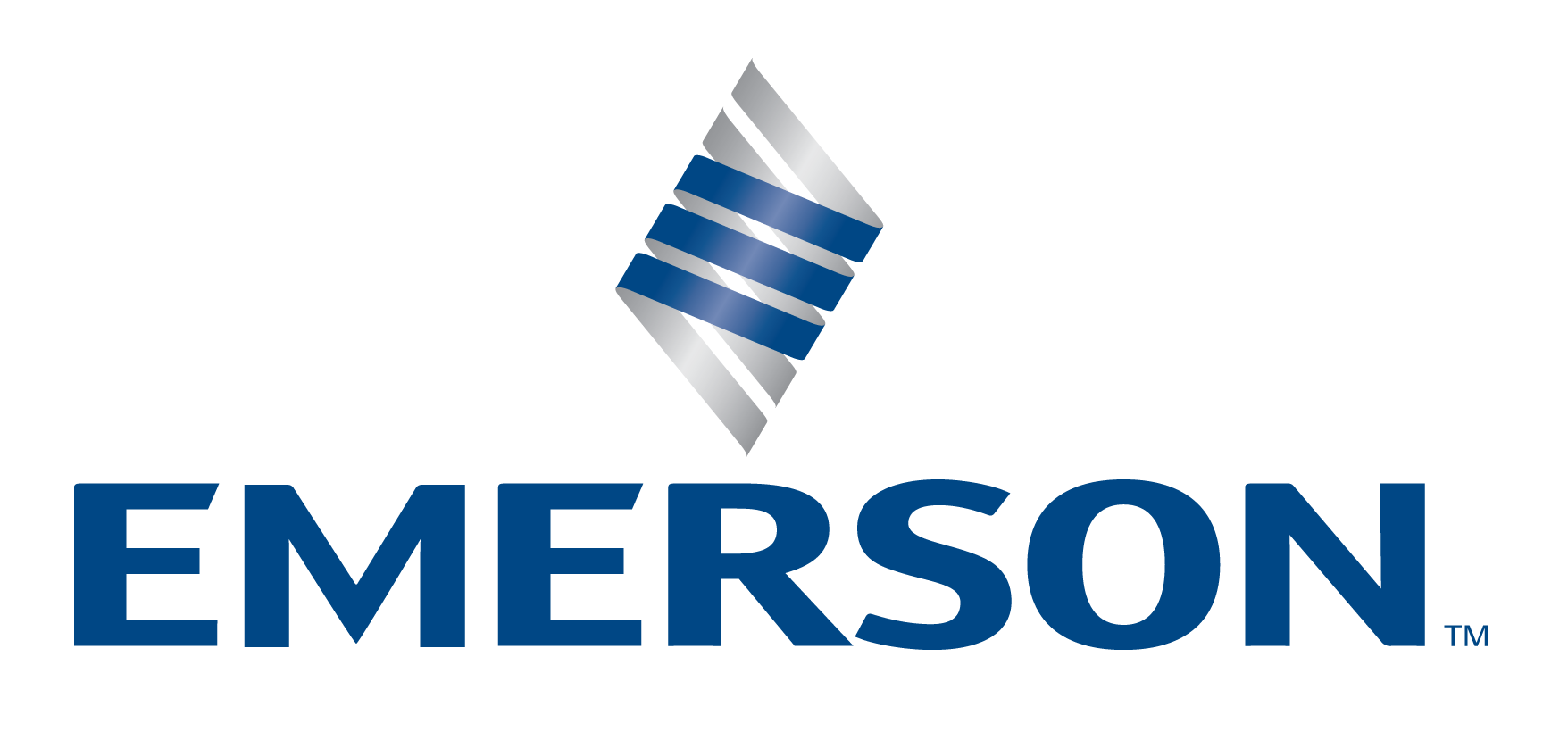
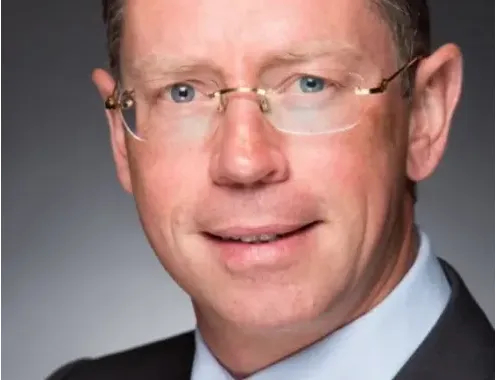
Cyrill Schuler - Director - Logitech EMEA Finance
What do you love about Switzerland and why?
As a native Swiss, this is a wonderful question to answer. But I think the wonders of Switzerland are obvious to anyone who lives and works here. In business, I'd call out Switzerland's capacity for innovation, high quality products, and excellent education and management skills. Personally, I love skiing and mountain biking - we have breathtaking mountains and views.
What do you think are the major challenges that lie ahead for Switzerland's growth?
I do not intend to give the Federal government or its institutions advice on the economy, but I can share some of Logitech's recipe for growth. Our co-founder, Daniel Borel, says that "success is never final". He's so right. The day you succeed at something, you should move towards your next success. Logitech designs dozens of products every year in an industry full of competitors, many of whom are inspired by our innovation and follow quickly after. That means we can never be satisfied with our success. We need to move fast and innovate. Last fiscal year we grew three new businesses into our portfolio - mobile speakers, video collaboration products for small and medium sized businesses, and accessories for tablet computers. They contributed around $380 million dollars to our sales. This is a great example of the need to move fast, innovate and keep moving. Whatever the future for Switzerland's growth, I'm convinced we'll succeed.
How does your organization stand out from the market and your competitors?
I've already described Logitech's ability to move fast and innovate. That sounds easy, but for a global organisation with around 7000 employees, it's a daily challenge. We have a "small company" culture at Logitech to help keep us hungry and lean, like a start-up. As a start-up you have nothing to lose - decisions get made and you move fast. That's what we aim for, no matter how big we grow. Big companies can all too easily be slowed down by bureaucracy, hierarchy and the complacency of size. We work to being the same speed into our innovation machine - prototyping ideas and iterations of our products very rapidly in order to fail, learn and perfect them as quickly as possible. We have also recently integrated a culture of design into our product innovation machine, ensuring our product experiences reflect art as well as science.
What are your growth plans?
Over the past two years we've worked hard on our profitability - it has tripled over that time period. We're now accelerating our growth transformation. For the current fiscal year, our outlook is to achieve 7% growth in our retail business in constant currency.
What challenges await your business and how will you overcome them?
Like every business, we face innumerable challenges. The PC and iPad markets are currently in decline, the strong dollar creates headwinds for our sales. Nevertheless, we never expect to be doing business without challenges and believe our strategy to be the right one.
What excites you about working for Logitech?
I've touched upon the reasons already - small company culture, the speed of the business... It's a wonderfully fast and inspiring culture built on the back of a great team of people.
If you could give your younger self career advice, what would it be?
Keep on learning - the world is changing so fast, you have to keep looking at it with a new pair of eyes.
What do you feel makes an effective sparring partner?
Someone once said that strategy without numbers is poetry. Said differently, strategy without numbers is just words. The point is that great strategies yield great numbers, and that really is what I love in my job. In partnership with my business leads, we frame strategies that yield growth, margin and cash. To succeed you need to convert data into insights, and insights into actions and lead organizations to ultimately impact positively our business. Being in finance, numbers are definitely a form of ” professional poetry”? but above all leadership and impact is what counts.
What are your personal motivators?
To have fun a work - it's a large part of your life. I love that I don't know what a day will be made of. I also admit to specifically enjoying working for Logitech. There's something new every day and I work with people who truly believe they can change the world if they put their mind to it.
When did you decide to explore a career in this area and why?
I better not admit that it was as early as 13 years old. Did I say that out loud?
How did you plan out your career path?
My first big job was with P&G - probably one of the best leadership ” academies”?. On-the-job experience and career progression there is a career plan in itself. That said, at the heart of a career, will always be a vision to achieve, a passion to pursue ... and the ability to identify the right opportunities.
What recruitment challenged do you face?
The idea some people have of Logitech is a Logitech from the traditional world of the PC. That's how we built our business. For the past two or three years, we've been reinventing ourselves. Our people, culture, product lines, leadership and brand are all very different, keeping the best of who we've always been. Every new candidate needs to be brought up to speed on this.
What attributes do you look for when choosing a recruitment partner?
The most important element in my opinion is a partner who takes the time to understand the company and role in order to identify the right profiles. EMEA Recruitment did just this - it took the necessary time rather than rushing in.
What advice would you give to future aspiring leaders or someone aspiring to be where you are now?
Branson is great, but there is not necessarily a need to be Branson to inspire. There are lots of talented people around you. If you learn from and emulate the best of them you're already on a good path. Also, it's important to learn that what you learn is often not what actually happens!
*Views and opinions contained within our Executive Interviews are those of the Interviewee and not views shared by EMEA Recruitment.*
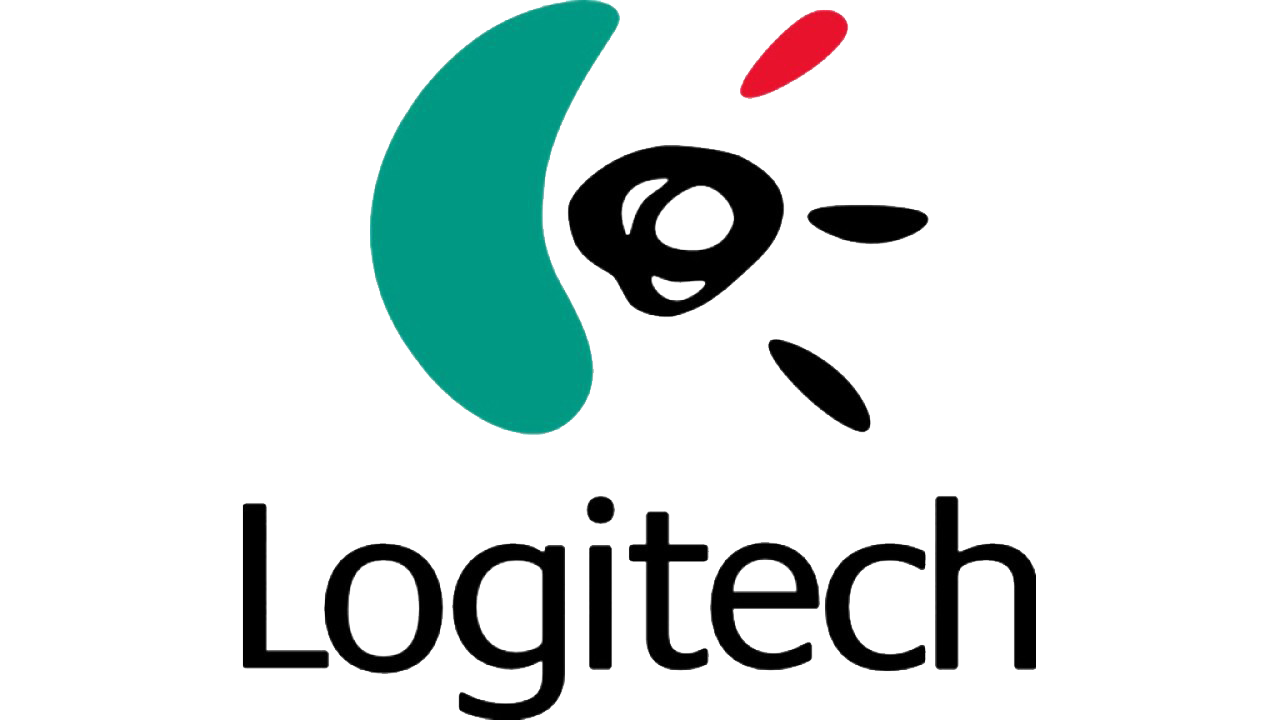
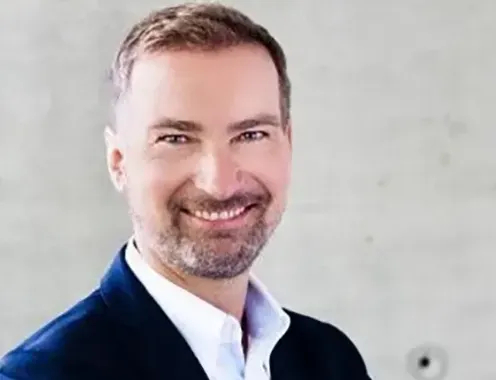
Reto Eberhard - Head of General Ledger - Audatex (Schweiz) GmbH - Solera Group
What would you say are the advantages of living and working in Switzerland?
Well, for me, especially if you look at the area of Lucerne to Zurich, it’s the smallest capital in the world, so, what I enjoy here, actually compared to London or New York, it’s the living standards, so you have fantastic public transportation, you have a lot of cultural things going on, for a more or less ok price and the kindergartens, the schools, the universities, are close by and they are state-of-the-art from an education point of view, so for me, it’s the way of living here – it’s easy and secure.
Yes, a lot of people have moved over because of all of these advantages that Switzerland has to offer.
Yes, this is true. It always depends on the company that you’re working for, so when you’re working for an International company, they can be straightforward and quite hard with their staff, so this is not the unique point in Switzerland, you don’t have the security, like you have in Germany, for example. This is a disadvantage. But, the job market, more or less, is quite good. So when you lose your job, and you’re up with your education, it is easier to find another job, an equivalent job, so this is good. You are still able to choose what you want to do.
That’s great. What challenges do you think are ahead for the Swiss economy over the next 5 years?
The strong Swiss franc. The Head Office is right now under the pressure of 1 franc, 1 euro. When they started in Switzerland, it was 1 - 1.50, and even the dollar was at 1.2; now it’s around .95, so you had an automatic increase in costs for International companies. This is certainly a challenge – how to speed up with their own process to make it cheaper, to make it faster and slimmer. The other point is that Switzerland has to keep up the pace of innovation – Switzerland is known for all sorts of innovation – that‘s why the economy is so strong so this also has to keep the pace.
How have you seen individuals have reacted to the challenges with the Swiss franc?
Local people, surprisingly enough, love it, because there is easy shopping in Europe, or vacations become a lot cheaper, so they are not really frightened of how it harms our own economy. Further to that, what Switzerland has to seek going forward, we have to start to train out own experts – you look at the health industry - 60-70% of people working in the health industry are people from abroad, so here, we have to grow from the inside as well to train the people. To offer them standard salaries – why a lot of foreigners are coming to Switzerland because the salaries are already high – so we have to train the people. Health is the biggest market coming up for Switzerland as well, since also the population is getting older. I’m one of the baby boomers and we are now coming to retirement age, and we need health, people looking after us – this is a big challenge also for the economy.
How have you seen the role of Finance change over the last 10 years?
The biggest change is the fast growth of information needs, so you want to look at your results from all sorts of aspects: by area, by product code, by the smallest item possible, so in Finance, that means that all these numbers have to be imported with downloads, and not any more with posting as in the old days, manually, so you have a lot of interfaces to maintain. The other part is that it grew in SOX controls, written controls and formalised controls; this was not the case 10 years ago. It started about 10 years ago, but now, it is state-of-the-art –everything you do has to be supported, has to carry on the correct signatures, otherwise it will end up in a deficiency and so, this is much stronger than it was 10 years ago.
What would you say the biggest challenge is for companies based in Switzerland in the current market?
For Swiss-based companies, it’s still the strong Swiss franc – this is certainly one of the biggest ones. For the local companies, it’s the tax benefits foreign companies receive when they move to Switzerland – they have this tax advantage for 5 to 10 years, which the local companies don’t have any more, so they feel the pressure there.
What would you say is the best piece of advice you could give someone who is just starting out in their career in Finance?
I love finance. Finance for me, is a mirror of the company – you see everything when you are working in Finance – all the money coming in, all the expenses, so you know what’s going on. Starting a finance career you have to plan, normally when you are around 22. Sometimes, you make a career by luck, but others make a career by planning. This is always a question when you have interviews: ‘where do you want to be in 5 years or 10 years?’ I recognise that a lot of people, they say something because they have to – they are trained to say something – but they don’t feel it in their heart. Try to gain a profound knowledge, rather than start to work as an AP, better start off in a small company where you are responsible for the whole process. They are exactly the same processes that you will see in even the biggest companies, but when you are head of there or you’re managing the accountants, then the door is actually open to apply for jobs in bigger companies, so plan it.
So does it make out harder to find people in general, do you think?
Today, to recruit people with process knowledge, this is quite hard, because normally, they are starting at bigger companies – they are doing their education in bigger companies, so they are always only doing little parts of the job. Once you really understand the process, how it goes, how you’re factoring, how you’re billing, how you get the signatures, the whole process in one and you do it for 2-3 years, this is knowledge that you will always be able to use.
From your point of view, what’s the best piece of advice that you’ve been given to date?
To say no. When you are asked to do things, especially in today’s environment, say no. Sometimes management asks you to do postings without the accurate supporting documentation, say no. When you are unhappy, change. When you don’t feel right in your position, or even in your life, when you don’t feel happy, change it. We are lucky, that in Switzerland, we are in the position, economically, for the time being, to say no to a job and go on in life and in career.
*Views and opinions contained within our Executive Interviews are those of the Interviewee and not views shared by EMEA Recruitment.*
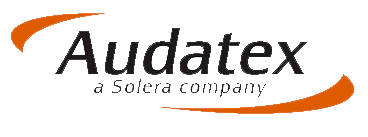
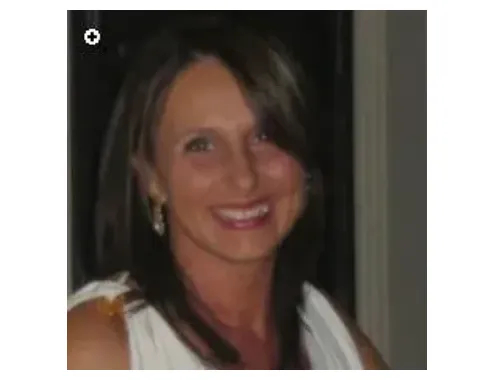
Cynzia Nardiello - CFO - Barry Callebaut Schweiz
Looking back through your established career, what would you identify as a personal highlight?
I have worked for very dynamic and multicultural companies so I am lucky to have had many highlights! When I was a Finance Manager for Alfa Romeo I was the only woman at the time working at this level in the business globally and I was also very young. It was a big challenge as I took over from someone who gave up after 3 months despite his experience, so I was asked to take on the role as they needed someone with personality. The position was in the UK and at the time I did not even speak the language! The role was a great success and I was later asked to become CFO for Mazerati.
My current position is also a big challenge, where we are really driving costs in production and purchasing. I had slowed down in my career and taken on the role as a mother, however, my young daughter is now 4 years old and last year I decided it was time to focus on my career again. An opening became available at Barry Callebaut due to a maternity leave and this has given me the chance to step up again.
If you could go back and give your younger (graduate) self some career advice, what would it be?
My advice to any graduate would be to gain international experience, seeing different countries and companies. It is a great opportunity to learn and gain respect for other cultures. It is important not to forget your individuality, but you need to be open minded. All of my highlights have been linked to international experiences, including projects I have been involved in in Russia and South America. This is really how you differentiate yourself.
What advice would you give to ambitious women who are aspiring to reach senior leadership roles?
My advice to anyone aspiring to senior leadership roles would be to never give up, but women need to make an extra effort. You really need to have belief!
When interviewing candidates at an earlier stage in their career what are the common mistakes you see and what advice would you give?
A lack of enthusiasm and preparation. I need to see ‘the drive’ in the person, why are they interested in the job or the company? There is sometimes a lack of direction and you are searching for the personality.
What are your personal motivators, particularly when working in a high pressure role?
My family is of course a strong motivator and also it helps that my husband is in a similar role, so his opinion is always important. We do not always speak about work, but if I have a concern they we can talk it through. I am a very motivated person anyway and I enjoy working, but it is important for your family that you are also satisfied.
What would you say is the most rewarding part of your role?
Being able to support management and profitability, the numbers are always important! Providing financial support where you can see how this effects commercial decisions and drives the direction of the business is really rewarding.
You have worked for Barry Callebaut since the end of 2007, what excites you about working for the business?
I started in the company working in the cocoa division, so I saw the source of the raw material and now I am working in chocolate as the finished product. I love the product, and love working in a product orientated business. It is a seductive product and I consider myself really lucky to work here. Previously I had the opportunity to work in the automotive sector and this was also great for me as I love cars as well! I have only ever left companies in the past where I did not have a feeling for the product.
What do you think are the major challenges that lie ahead for Switzerland’s growth?
Switzerland needs to rethink its business model as the environment has changed and there is a need to reinvent to become more competitive and innovative. I believe that behind every problem there is a new opportunity.
*Views and opinions contained within our Executive Interviews are those of the Interviewee and not views shared by EMEA Recruitment.*








You can also use your social account to sign in. First you need to:
Accept Terms & Conditions And Privacy Policy